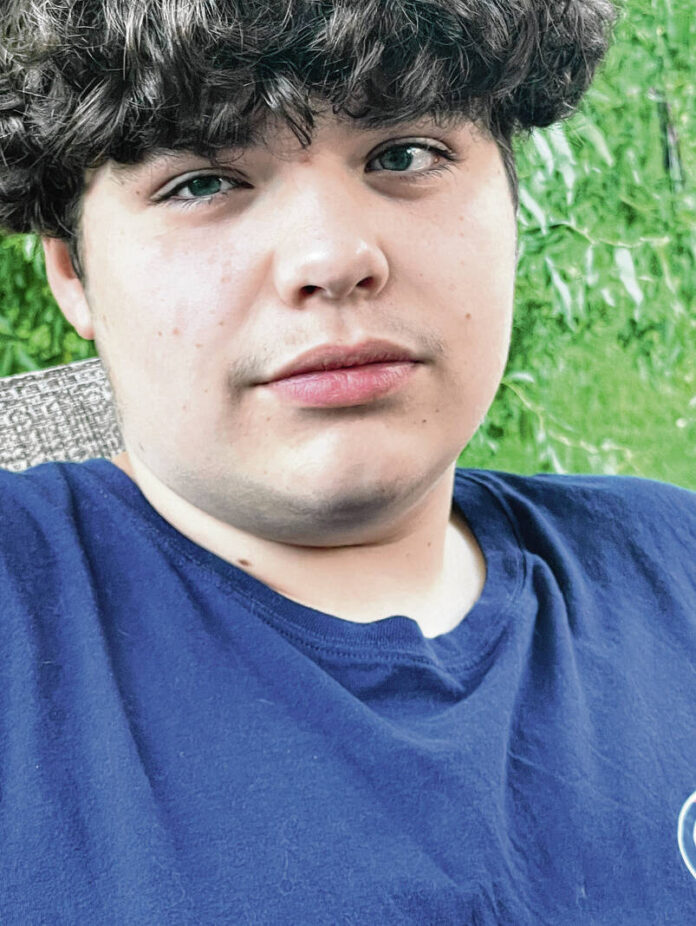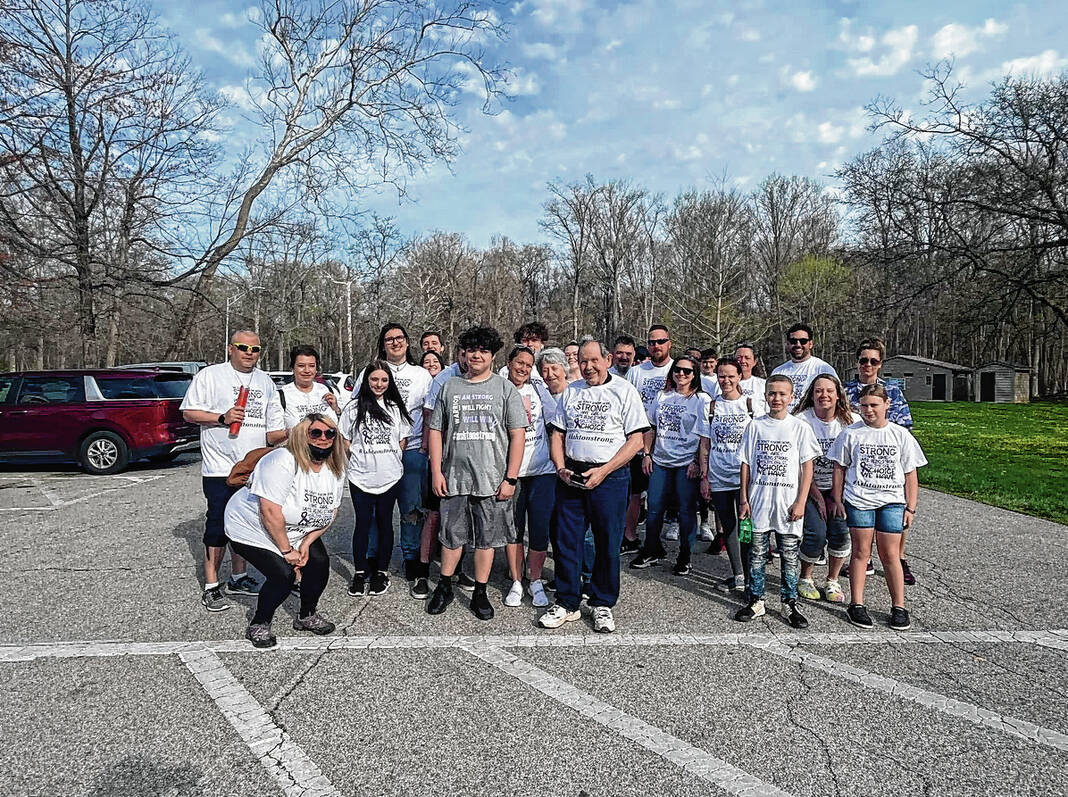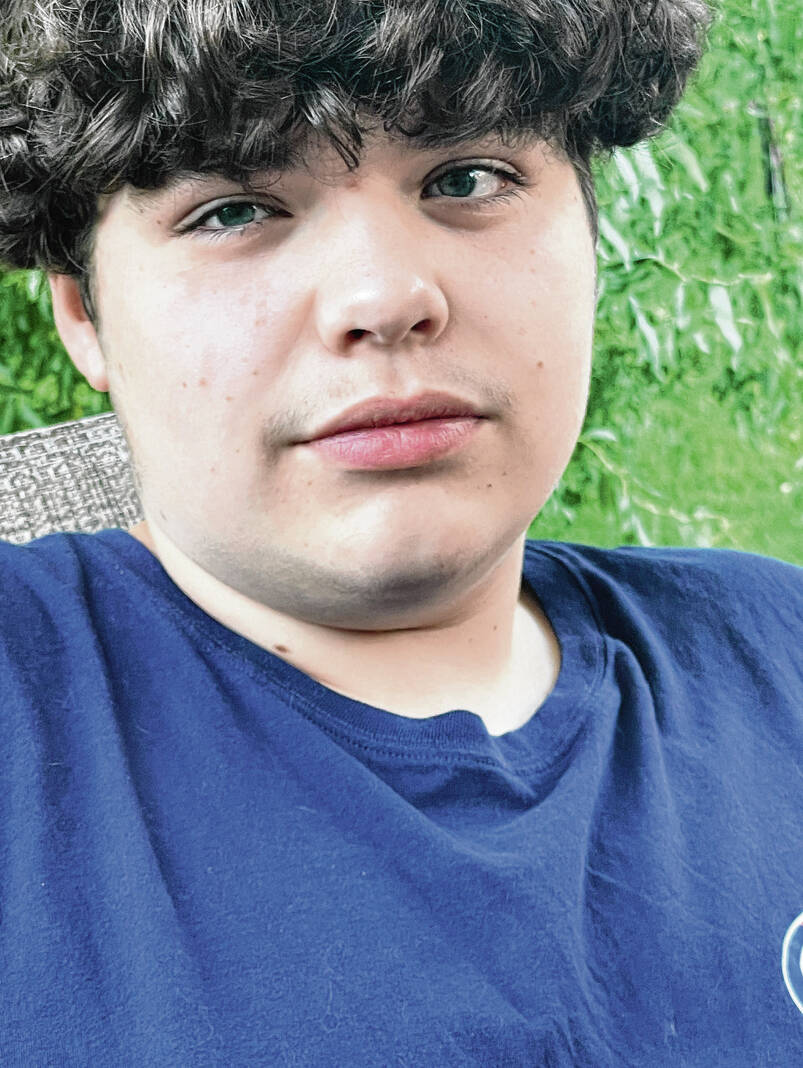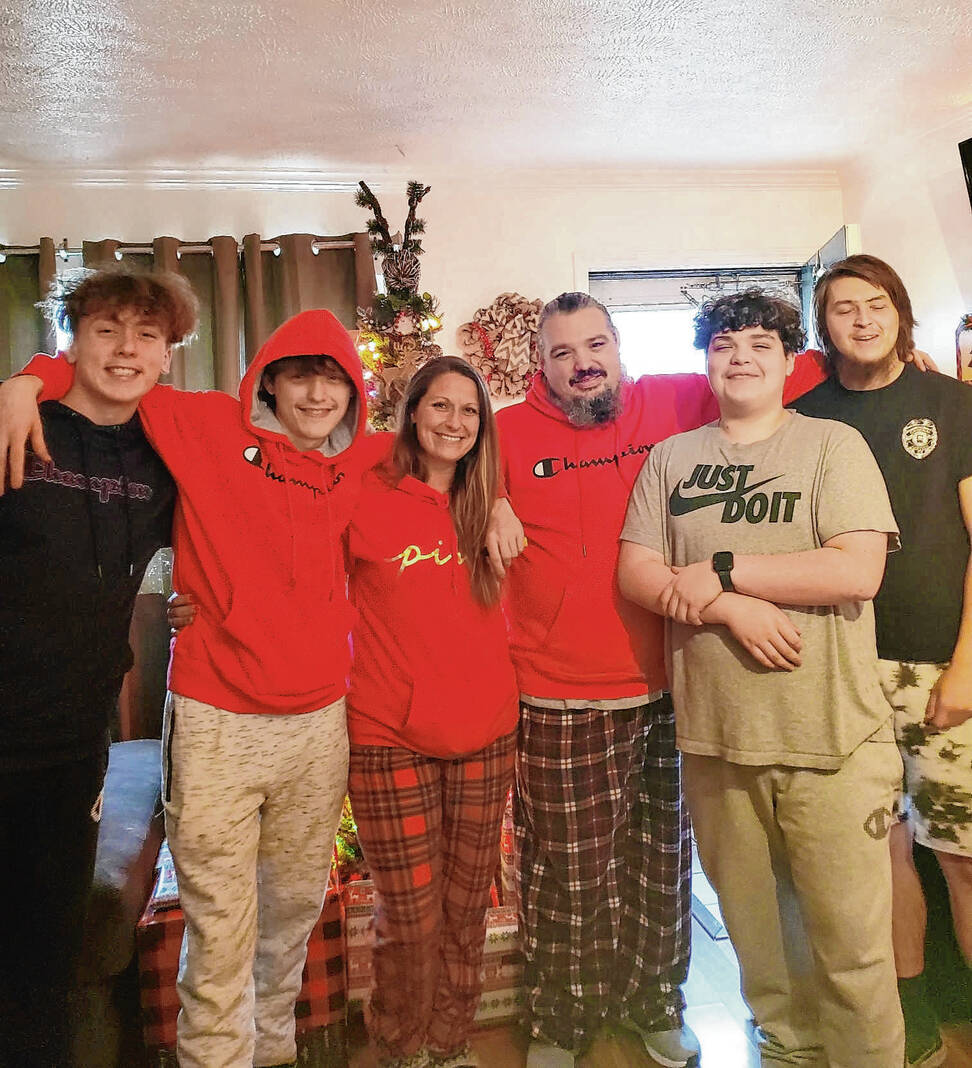
Ashton Shirrell, 17, of Indianapolis, suffers from refractory/focal epilepsy that causes a range of seizures, some of which are severe enough to cause him to stop breathing. Greenwood VFW Post 5864 will host a fundraising walk on Saturday to help with medical and travel costs for Ashton and his family.
SUBMITTED PHOTO
The uncertainty is the worst part.
Ashton Shirrell understands this. The 17-year-old Indianapolis resident suffers from severe epilepsy, which causes a range of seizures that can cause vomiting and dizziness. The most severe ones cause his breathing to stop, which means he needs to be watched at all times by his parents and family.
The seizures dominate every day of his life — and can happen at any time.
“The real fact is, we may not have Ashton around for much longer. With epilepsy, it could be today, it could be next year, it could be 12 years. We just don’t know. We just know the medicine isn’t controlling it,” said Charlene Shirrell, Ashton’s mother.
Ashton faces upcoming brain surgeries that may offer his only hope for survival. He is on the waiting list for a procedure that could help stop the seizures that have dictated his life for the past years. A second surgery could be necessary afterward, depending on what surgeons find.
Without fixing the problem, Ashton will die.
“It’s heartbreaking to know that you can’t do anything for your child,” Charlene Shirrell said.
To help the Shirrell family with mounting medical costs, particularly with the surgeries coming up later this year, Greenwood VFW Post 5864 is hosting a benefit walk, run and ride on Saturday.
The opportunity to help the Shirrells — particularly since Charlene Shirrell is a member of the VFW Auxiliary at the post — was an easy decision, said Steve Milbourn, commander of Post 5864.
“Our commitment is to VFW members, auxiliary members and their families,” he said. “Because she also worked for us one time, before she became a member, we would have done it anyway, simply because it’s the humanitarian thing to do, the right thing to do.”
Growing up, Ashton loved to play outdoors and go fishing with his father, David Shirrell.
He was fearless, always willing to scamper up a tree or leap off a playground.
“He was always our little daredevil. The kids has had more stitches and staples, I can’t even count,” Charlene Shirrell said.
But life has changed drastically in the past two years, as Ashton started suffering nausea, vomiting and small seizures — electrical disturbances in the brain that interferes with its normal function.
In June 2021, Ashton developed viral meningitis, and during treatment for the disease at Riley Hospital for Children at IU Health, doctors noticed indicators of epilepsy on his scan. Epilepsy runs in both sides of the Shirrell family, Charlene Shirrell said.
He was put on medication to treat the seizures. But in October 2021, he suffered a major bout of seizures that caused him to stop breathing.
Smaller, less life-threatening seizures also increased.
“He has different types. They all look different,” Charlene Shirrell said.
Though medications prescribed by his team at Riley Hospital for Children controlled the most serious seizes, it only worked moderately well on the ones he has while sleeping. The drugs don’t work at all on the small ones he has multiple times every day, Charlene Shirrell said.
From the results of the myriad of tests and scans, the team at Riley Hospital for Children indicated there was nothing more they could do from Indianapolis.
“There was nothing else they could do here — it was too complex, too serious, too life-threatening and unknown for them to continue to treat Ashton,” Charlene Shirrell said.
The Shirrell family was directed to the Mayo Clinic in Rochester, Minnesota, which offers some of the most advanced epilepsy care in the nation. A battery of intensive scans and tests commenced to try to better pinpoint the cause of Ashton’s epilepsy.
The tests did not reveal any tumors — often a cause of seizures — and genetic tests did not reveal any known markers that would cause the condition. Scans revealed that right side of Ashton’s brain is most affected, though there is some malfunction on the left side, Charlene Shirrell said.
The next step for the Shirrells is brain surgery later this year with Dr. Kai Miller, a top neurosurgeon at the Mayo Clinic. Ashton is on the waitlist to be seen by Miller, and the operation is expected to be done sometime in the fall, Charlene Shirrell said.
Surgery will allow the medical team to examine other parts of Ashton’s brain searching for causes.
“They may find out there’s something deeper in the brain malfunctioning, and it just appears it’s coming from other parts. We’re hoping it’s localized in one area that really starts it every time, which would be a better prognosis,” Charlene Shirrell said.
The family will need to move to Minnesota for weeks while Ashton recovers. After the surgery, the Shirrells will discuss with Mayo Clinic officials to discuss the next steps to give Ashton a better quality of life and better outcome on his life expectancy.
In the meantime, because of the severity and unpredictability of the seizures, Ashton’s life has been sealed off.
“He’s isolated. He stays in his room, he plays his video games, he talks with his group of friends over the phone,” Charlene Shirrell said. “The small seizures, he’ll feel nauseous, throw up and sleep a lot.”
Nighttime is unpredictable and frightening.
“He’s switched his sleep schedule, because he’s afraid to go to sleep, because he has them in his sleep,” Charlene Shirrell said. “He feels safer when I’m awake and he’s asleep, because I’ll check on him and he knows he’ll be breathing.”
Still, there is the gnawing fear that his mother and father, and his three brothers, live with every day.
“It’s super stressful. We try to wear our emotions on our sleeves, to not upset him, but he knows at his age how we feel and how scared we are too,” Charlene Shirrell said. “We just try to enjoy the time we have together.”
The onset of Ashton’s condition has upended life for the entire Shirrell family. Even with insurance, hospital bills and medication costs have mounted. His parents, Charlene and David Shirrell, have carefully managed their vacation time to be able to travel for treatment.
Still, it’s been increasingly difficult financially. That struggle is what led the Greenwood VFW to get involved.
Charlene Shirrell had been part of the VFW family for years, working as a manager in the post bar and joining the auxiliary. During a conversation with Milbourn, the idea emerged to put together a benefit for the family.
“It’s tough for a young person like that,” Milbourn said. “Those are things that are out of our control to a large degree. All you can do is give prayer and hope to those people that are touched by it and go from there.”
The three-mile walk, run and ride starts at the post’s headquarters on the east side of Greenwood at 8 a.m. Saturday. With the $10 admission fee, people will be entered in a raffle at the end of the event, Milbourn said. A 50-50 drawing is also planned, and participants can enjoy hot dogs and chips after the walk.
The Shirrell family also has epilepsy awareness and “Ashton Strong” bracelets available.
For the family, the outpouring of support has been inspiring.
“It means the world to us. For me as a mom, it makes me feel loved and cared about,” Charlene Shirrell said.
The Shirrells are managing for the time being. Prior to the surgery later this year, the family is taking a trip through the Make-A-Wish Foundation to Orange County, California, to stay in a house with a pool on the beach — one of Ashton’s dreams.
They want to be able to enjoy every moment together, Charlene Shirrell said.
“It’s been rough juggling all of these things in the last year. But we’ve stuck together as a family, we’ve managed, and that’s all you can do,” she said. “You can’t lay down and give up; you have to push through and keep up the fight.”
IF YOU GO
Ashton Shirell benefit walk, run and ride
What: A fundraising event to support Ashton Shirell, a 17-year-old Indy resident who suffers from epilepsy, and his family. Money raised will help cover medical costs and travel expenses to go to treatment.
When: 8 a.m. Saturday
Where: Greenwood VFW Post 5864, 1842 Veterans Way, Greenwood
Cost: $10 per person
Information: greenwoodvfw.com








